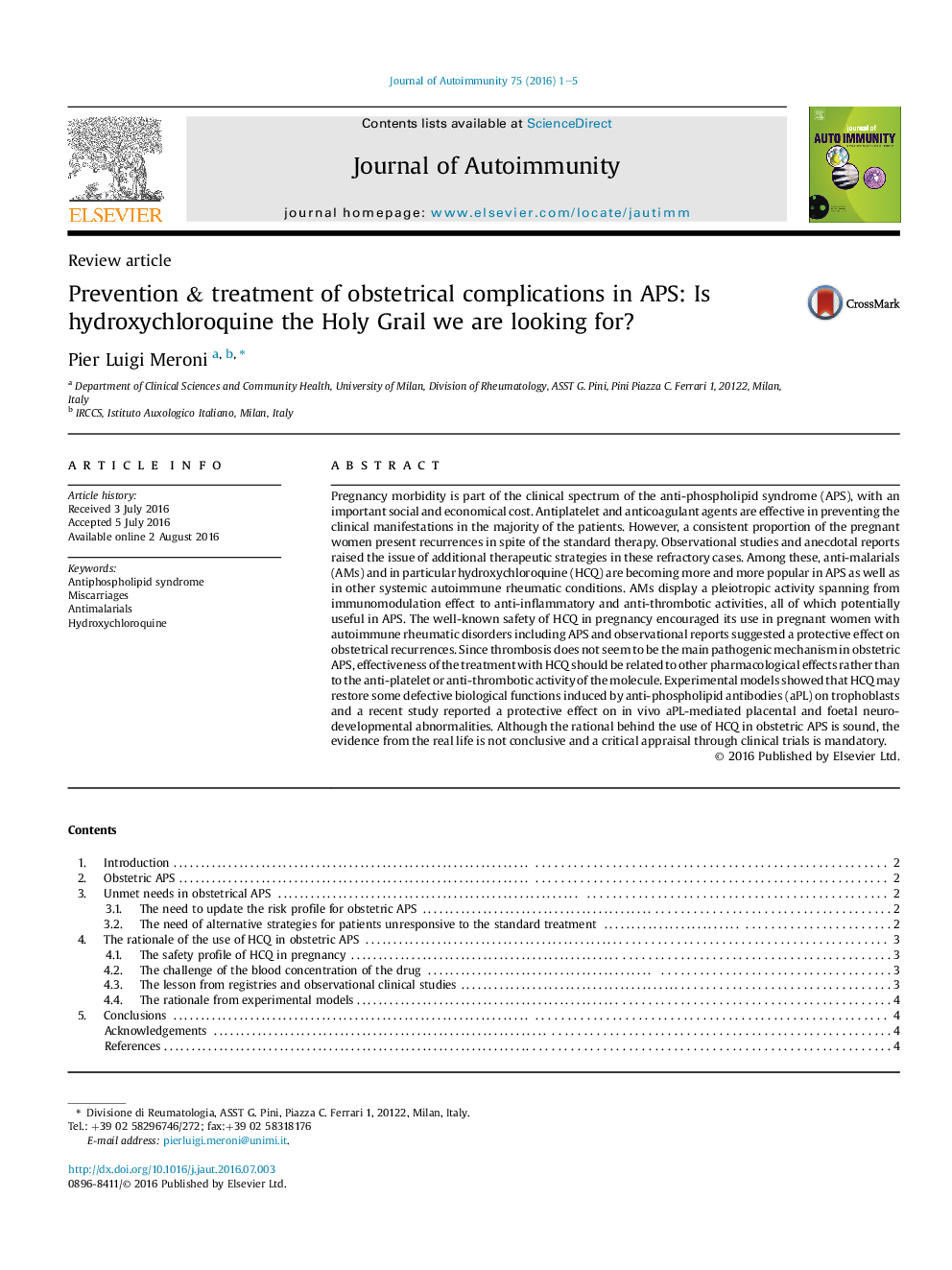| Article ID | Journal | Published Year | Pages | File Type |
|---|---|---|---|---|
| 5667943 | Journal of Autoimmunity | 2016 | 5 Pages |
â¢Heparin/low dose aspirin prevent recurrences in obstetric APS, but up to 20% of pregnancies are refractory to this therapy.â¢Additional therapies on top of the standard treatment may increase the positive pregnancy outcome.â¢Anecdotal reports showed that hydroxychloroquine is beneficial in refractory obstetric APS.â¢Experimental models suggest that hydroxychloroquine prevents pathogenic effect of anti-phospholipid antibodies.
Pregnancy morbidity is part of the clinical spectrum of the anti-phospholipid syndrome (APS), with an important social and economical cost. Antiplatelet and anticoagulant agents are effective in preventing the clinical manifestations in the majority of the patients. However, a consistent proportion of the pregnant women present recurrences in spite of the standard therapy. Observational studies and anecdotal reports raised the issue of additional therapeutic strategies in these refractory cases. Among these, anti-malarials (AMs) and in particular hydroxychloroquine (HCQ) are becoming more and more popular in APS as well as in other systemic autoimmune rheumatic conditions. AMs display a pleiotropic activity spanning from immunomodulation effect to anti-inflammatory and anti-thrombotic activities, all of which potentially useful in APS. The well-known safety of HCQ in pregnancy encouraged its use in pregnant women with autoimmune rheumatic disorders including APS and observational reports suggested a protective effect on obstetrical recurrences. Since thrombosis does not seem to be the main pathogenic mechanism in obstetric APS, effectiveness of the treatment with HCQ should be related to other pharmacological effects rather than to the anti-platelet or anti-thrombotic activity of the molecule. Experimental models showed that HCQ may restore some defective biological functions induced by anti-phospholipid antibodies (aPL) on trophoblasts and a recent study reported a protective effect on in vivo aPL-mediated placental and foetal neurodevelopmental abnormalities. Although the rational behind the use of HCQ in obstetric APS is sound, the evidence from the real life is not conclusive and a critical appraisal through clinical trials is mandatory.
